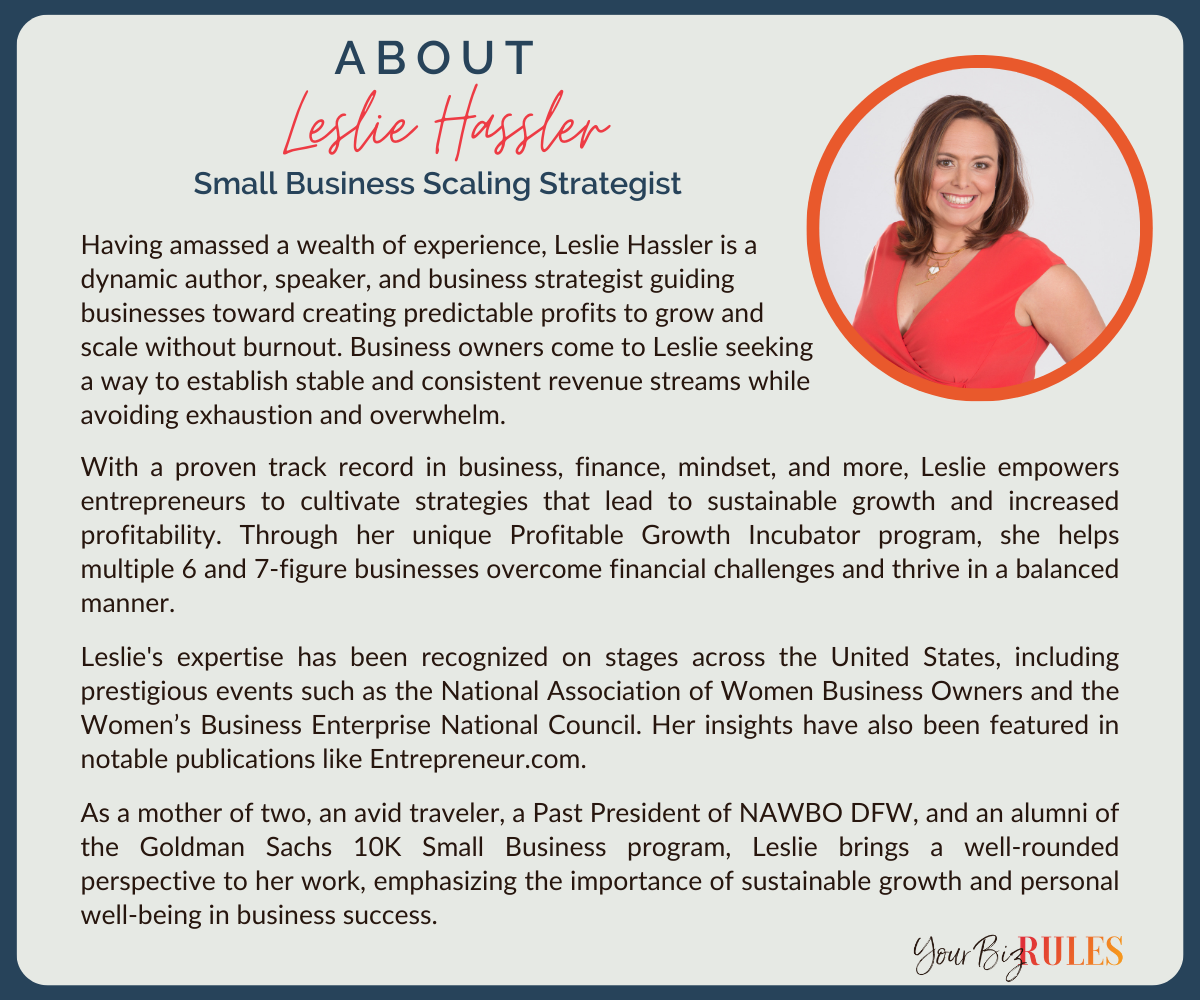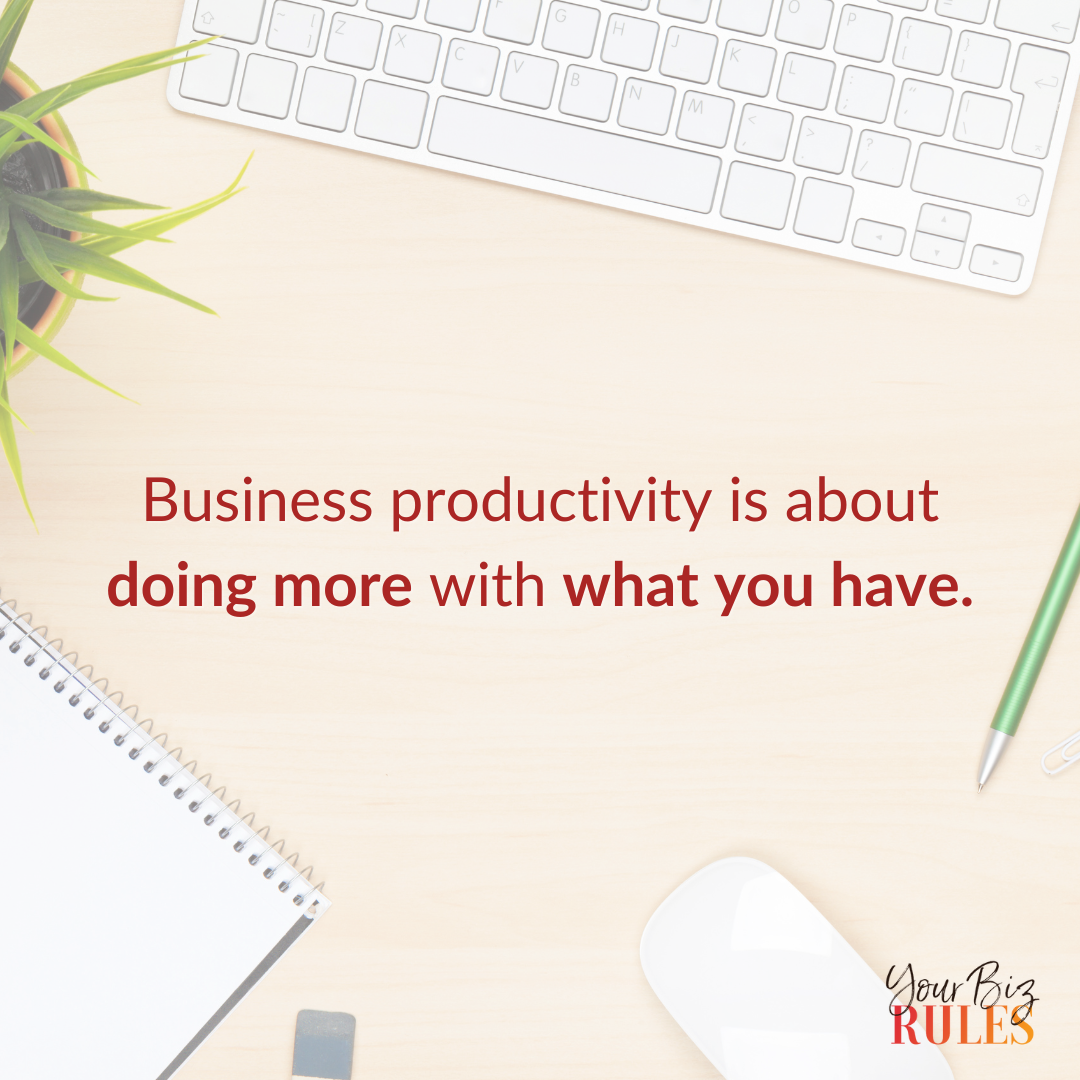Are you operating your business with the mindset that unlocks its potential or stops it in its tracks? Imagine overcoming challenges with ease, welcoming feedback, and using setbacks as stepping stones - that's the power of a growth mindset....
Transform Your Entrepreneurial Journey: Mastering Growth Mindset for Success!
Summary:�Are you operating your business with the mindset that unlocks its potential or stops it in its tracks?�
Let�s dive into the crucial differences between a fixed and a growth mindset, introduced initially by psychologist Carol Dweck. Let�s explore the theory and how these mindsets tangibly affect your business success. �
Imagine overcoming challenges with ease, welcoming feedback, and using setbacks as stepping stones - that's the power of a growth mindset. �
Read on to discover how to transform your approach, boost your business, and achieve enduring success. It's more than a mindset shift. It is a game changer for your entrepreneurial journey. Let's explore how to make this pivotal shift together.
What is your default operating mindset system?
Carol Dweck, a psychologist and author of �Mindset: The New Psychology of Success,� introduced the idea of growth and fixed mindsets. � Her research focused on identifying the characteristics of successful students.� When faced with adversity, some people crumble, while others persevere.
She coined these two approaches as having a fixed and a growth mindset.
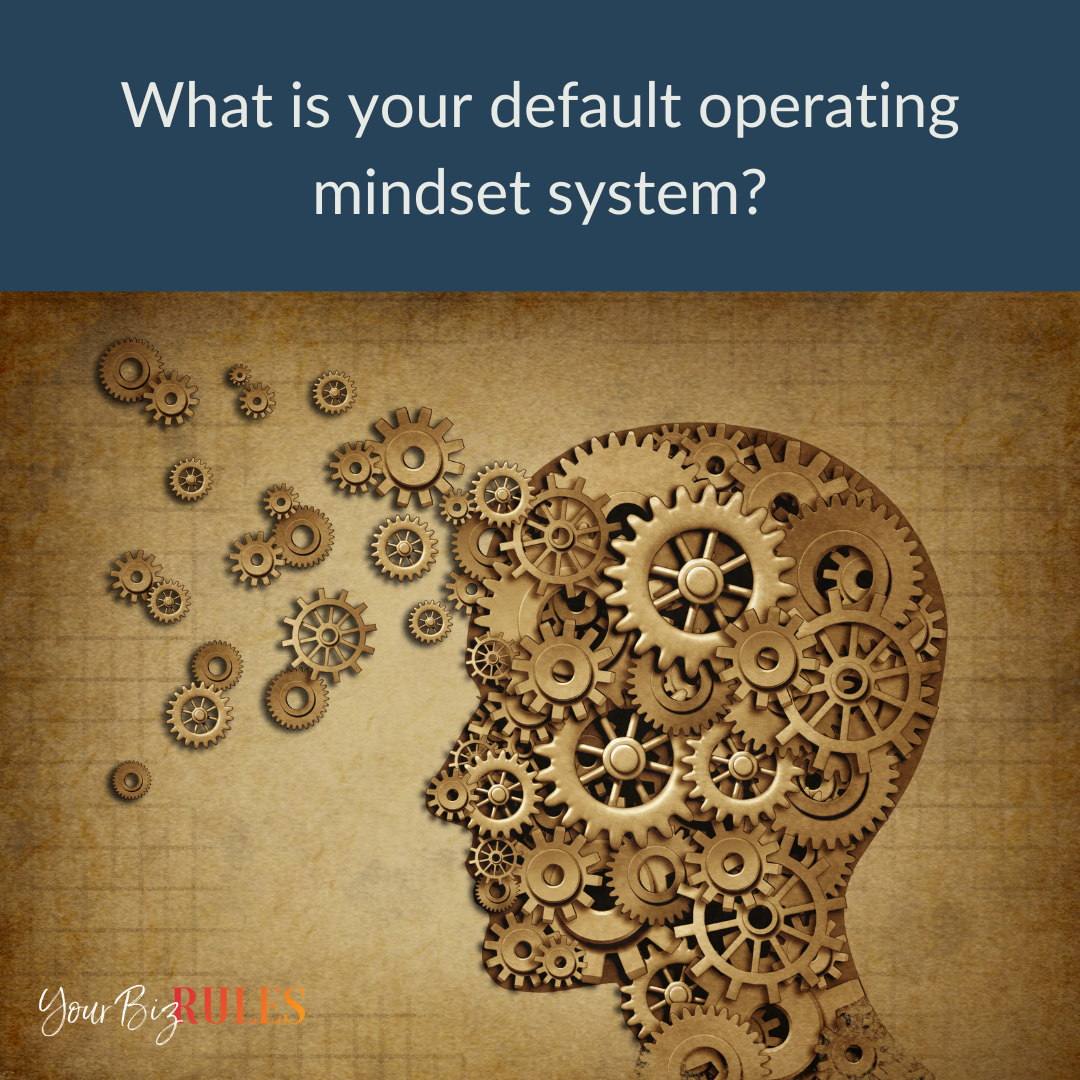
Defining A Fixed Mindset
A fixed mindset is based on a few core signs, such as:
A flight or freeze response activates and feeds a fixed mindset.
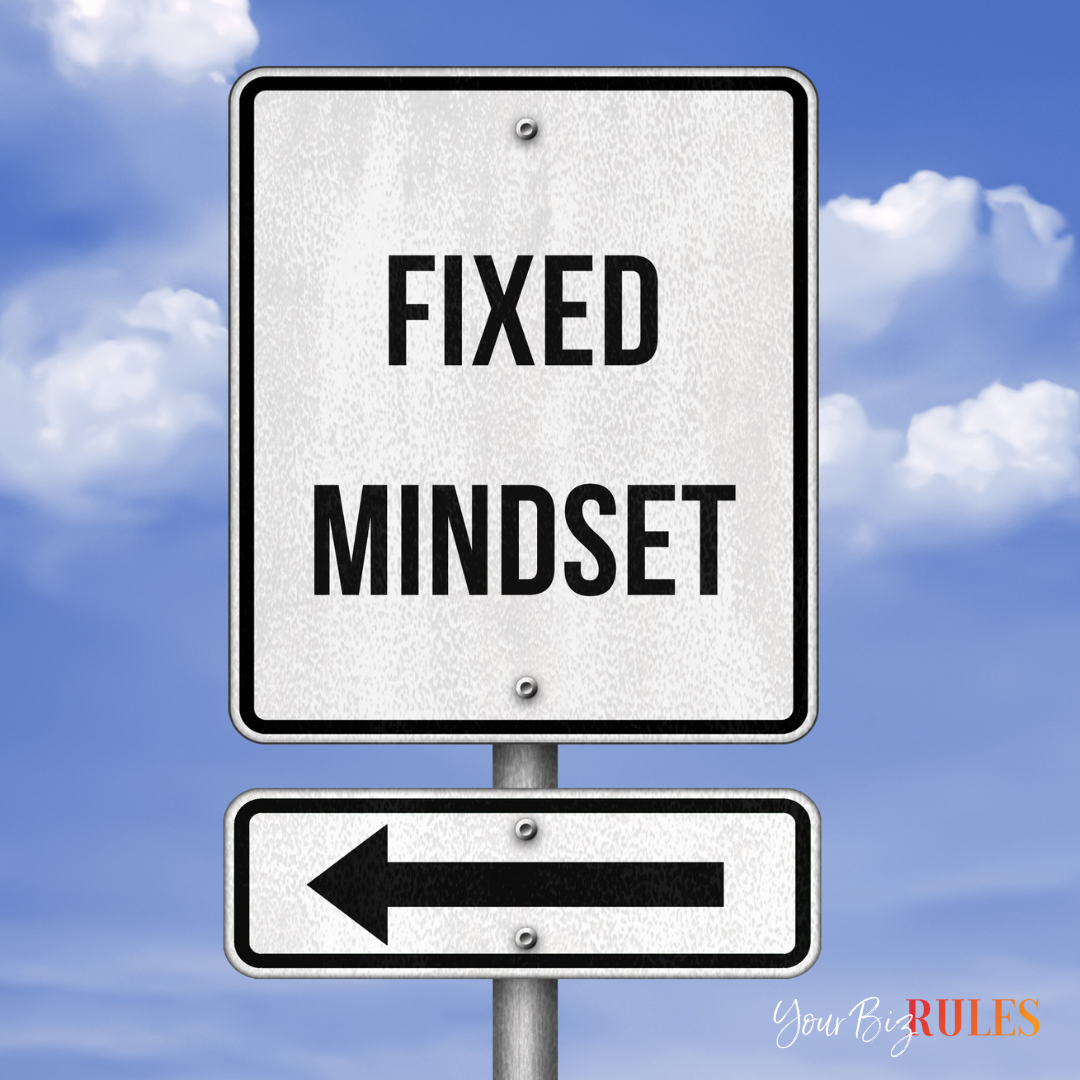
There is a place in your mind where you believe you are good or bad at things and will always be that way.� It is based on the belief that you will remain who you are no matter what you do.� It's like you're trapped in a prison of your own making.
Dweck found that continually operating from a fixed mindset led to declining success.� In essence, it created a downward spiral. Staying locked in a fixed mindset only creates less and an increased fixed mindset full of unrealized potential.
Defining A Growth Mindset
On the other hand, operating in a growth mindset leads to incremental success and growth. Whether through knowledge, experience, or effort, a growth mindset believes you can become more than you are today.��
People who operate from this mindset are often seen as displaying these characteristics:

Whereas a fixed mindset can avoid new market challenges due to fear of failure,�
a growth mindset embraces these challenges, seeing them as opportunities to learn and expand.
People who operate from a growth mindset are the people who demonstrate resilience by picking themselves up, dusting off their scraped knees, and trying again.�
This approach personifies growth, resilience, integrity, and tenacity.� These traits can make a huge difference in your success.
The Entrepreneurial Shortcut
Ultimately, we encourage our clients to adopt a growth mindset instead of feeling stuck where they are operating with a fixed mindset - and we will share the hows of that moment.
Before I get into how to change to a growth mindset, I want to address the entrepreneur who needs to accomplish a task and get out of a fixed mindset in a certain area.
However, they recognize that the job just needs to be accomplished, and the transformative mindset work will not benefit the long-term success of your business.
In these cases, we lean into the concept that, as the business owner, it is not your job to do all the work of the business. It is your job to ensure that all the work of the business gets done.

Suppose you are an established business owner with 3 to 5 years under your belt.� You can hire a team member with experience and a growth mindset to fill the role that needs more success.��
Have a fixed mindset about sales?� Great, hire it out.� You will need to work on your attitude and approach because, as the organization's leader, you need to support the work of that hire.� In this way, you only need a minor transformation and can still enjoy the benefits of adopting a growth mindset.
While adopting a growth mindset, remember it's not about doing everything yourself. It's about ensuring everything necessary for your business's success is accomplished, sometimes through delegation.
3 Steps to Adopting a Growth Mindset
As a business leader, your role is to manage with the ideals of growth, resilience, integrity, and tenacity, which requires operating from a growth mindset as a default. Let�s take practical action to boost your growth mindset.
Step 1: Identify And Challenge Fixed Mindset Thoughts
For example, jot down your initial thoughts when facing a new project. Are they rooted in apprehension or excitement for growth?
You can implement this action through self-reflection and journaling.� This is easy for the prominent areas that you have some consciousness around.��
What about those areas that are less obvious? Ask others you trust to call attention to the moments you are operating in a fixed mindset. �
The words you choose are often a good indicator of the areas. �We�ve developed an ear for these keywords and a way to simply reflect them to our clients like a mirror. ��

When you get this feedback, you may have a defensive moment.� This defensive posture is a good indicator of a fixed mindset.��
Take a breath, it�s ok.� This isn�t a threat; it�s an opportunity and a challenge for you to step into.
Step 2: Embrace Challenges And Persist Through Setbacks
Our philosophy is that being successful in entrepreneurship isn�t about being �right� all the time.� It is about learning because there are often many suitable choices and decisions.
Only through learning can you find the correct answers for you right now.� With change being our only constant, today's answers likely won�t be the correct answers for tomorrow.��
In this way, what if challenges are opportunities and setbacks are learning?
What if we run experiments, prove or disprove our assumptions, and make better decisions with the learnings we have?
I have been operating with this mindset. I sometimes jokingly refer to it as a mad scientist, sometimes running micro experiments and other times as running grand experiments.�
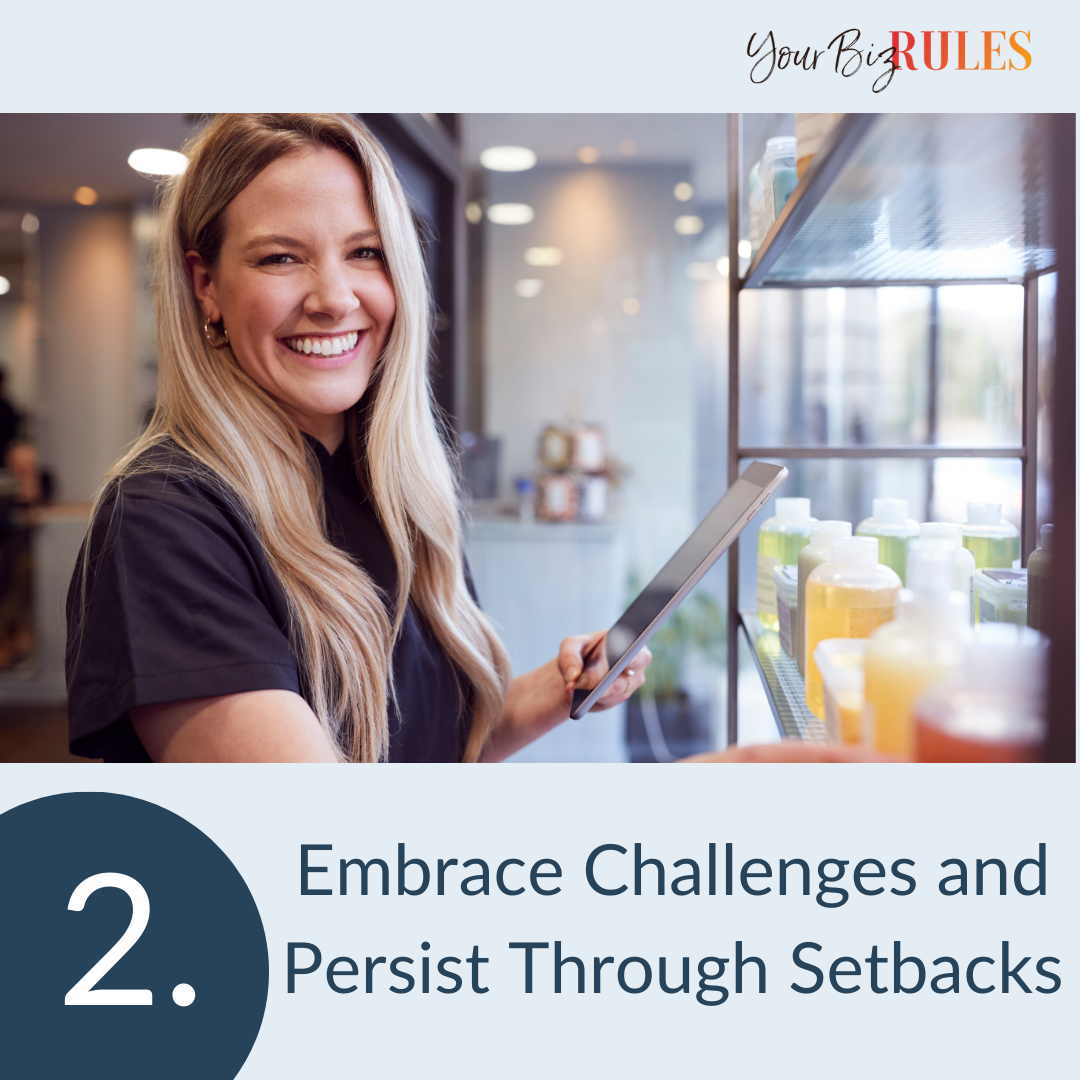
These experiments are the way that Your Biz Rules learns as an organization.� We look at the information, assess the facts, and try new things. Sometimes, they work exactly as planned. Other times, it looked good on paper but did not turn out how we thought it would.
That is ok. We have procedures in place to watch and adjust for these times. So, the experiment may not "succeed," but we always learn from the choices made, so we consider it a success that we learned and moved forward.
I make that sound easy. Yet, as a fellow business owner, you know that when you try something new, you plan and hope for the best. We also plan and consider the costs in case the worst happens. Sometimes, we have great hope, only to be left with great disappointment.� I hope you do not know that feeling. But, if you have lived long enough, I think everyone has felt it.
That doesn't stop us. We don�t give up on the learning process because of the value of these experiments over time.� Even the ones that have yielded disappointment yield results in other ways.��
We learn ways to help our clients improve their businesses.��As we learn from earlier experiments, we contribute to the success of today�s experiments.��We re-run some experiments because the idea was good, the methodology was sound, and now we have time and resources to create success.��The ability to persist and be resilient through challenge is a skill you can cultivate.� You can even borrow the resilience of others.��
Who is a �big-time� entrepreneur you admire?� Study their journey, especially how they greeted challenges and how they developed resilience.
Step 3: Develop And Nurture A Passion For Long-Term Goals
In developing and nurturing a passion for long-term goals, you learn to love the process and be slightly detached from the results.� Committing yourself to the goal detaches you from what it will take to reach it.
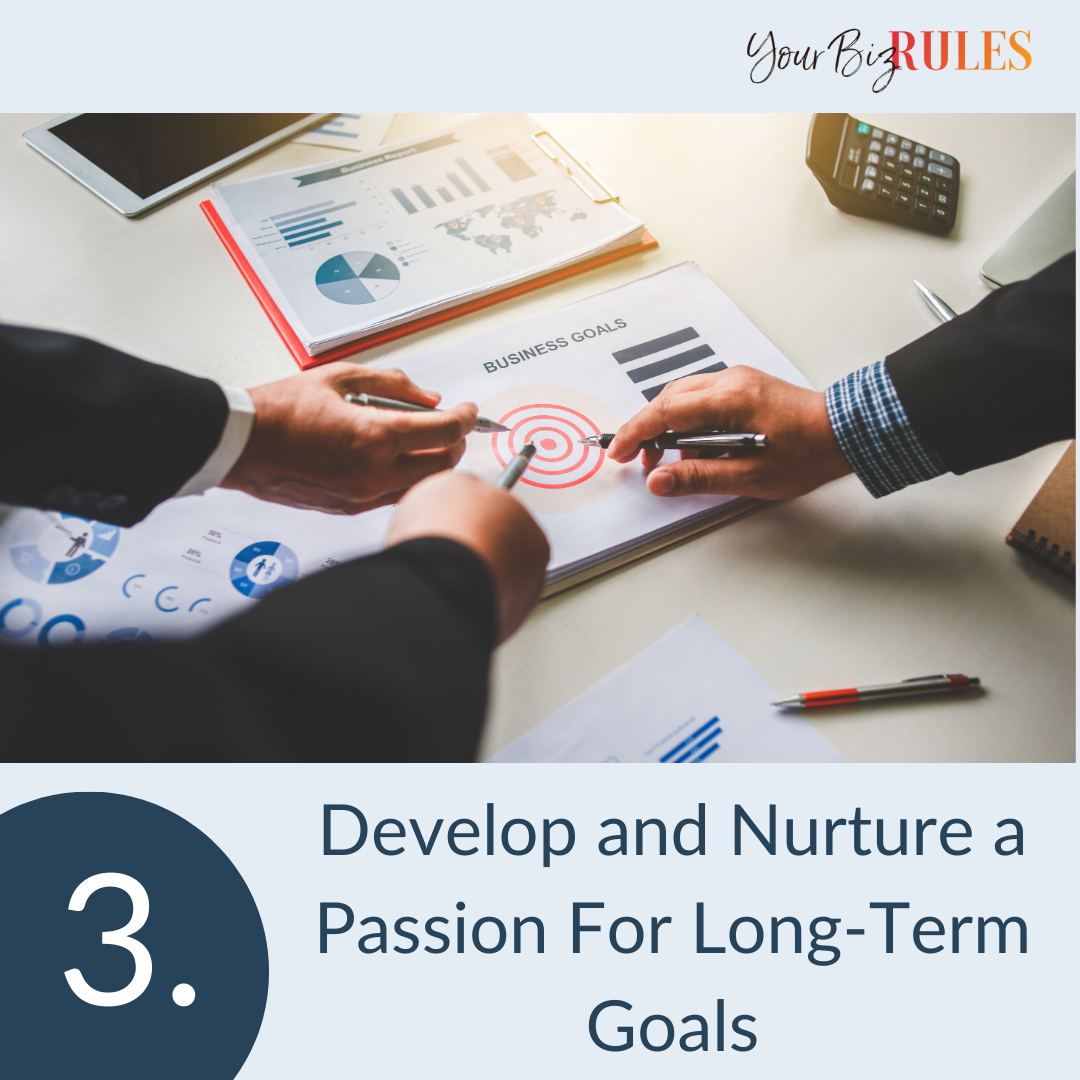
For instance, you aim to host a sumptuous, joyful dinner for friends and family.� You can imagine the ambiance you want to create, how you want people to feel, and even the interaction with the food.��
With that in mind, you go to your farmer�s market with a budget and a sense of adventure to find the best of what the market offers for the menu.
Enjoying the journey, you enter into an exploration, and with one market tour, you know exactly what will be on the menu.
In developing and nurturing a passion for long-term goals, you learn to love the process and be slightly detached from the results.� Committing yourself to the goal detaches you from what it will take to reach it.
For instance, you aim to host a sumptuous, joyful dinner for friends and family.� You can imagine the ambiance you want to create, how you want people to feel, and even the interaction with the food.��
With that in mind, you go to your farmer�s market with a budget and a sense of adventure to find the best of what the market offers for the menu.� Enjoying the journey, you enter into an exploration, and with one market tour, you know exactly what will be on the menu.
In being detached from the how, you succeed because you are open to more options.� You�re not worried about failing because you are committed to the goal of your dinner - and because you have clarity with what you are trying to achieve, you can make decisions about the food choices to meet your expectations.
But imagine instead that you were very attached to serving squash blossoms. And it is the Fall. �You embark with enthusiasm. You aim to host a sumptuous, joyful dinner for friends and family. �You can imagine the ambiance you want to create, how you want people to feel, and even the interaction with the food.
With that in mind, you go to your farmer�s market with a budget and a sense of adventure to find the best of what the market offers for the menu.� Enjoying the journey, you enter into an exploration, and with one market tour, you know exactly what will be on the menu.
In being detached from the how, you succeed because you are open to more options.� You�re not worried about failing because you are committed to the goal of your dinner - and because you have clarity with what you are trying to achieve, you can make decisions about the food choices to meet your expectations.
But imagine instead that you were very attached to serving squash blossoms. And it is the Fall.� You embark with the same sense of adventure but get discouraged as you hit market after market with no squash blossoms.��
Your determination to find the squash blossoms costs you time, money, and your belief and motivation for the goal.��
Ultimately, you�ve got to make some decisions and feel cheated by fate. (Hint: There�s that fixed mindset showing up again.)
Now substitute the goal for a sumptuous dinner for any other goal you have - what is your approach, and how could it be improved with what we�ve shared in this article?�
The Real Payoff to Adopting a Growth Mindset
The biggest payoff to adopting a growth mindset is that you stay in the game.� That perseverance turns into tenacity.� Tenacity doesn�t take no for an answer and will stay committed to the goal. Cultivate resilience by setting small, achievable goals within larger objectives. Each small success builds tenacity and confidence, fueling your journey forward.
The belief that anything is possible if you set your mind to it and stay consistent allows you to adapt to the situation. Just as our example adapted to the market's bounty - choosing from the best of what�s available and experimenting with the unknown to create beautiful results.
Instead of avoiding challenges, a growth mindset seeks them out, viewing each as a chance to innovate and improve. For example, instead of shying away from new technology, see it as a chance to gain a competitive edge.
When you can detach yourself from the results of your experiments, you demonstrate greater resilience, which creates an environment of action.� You�ll think, �If not this, then what?��
You will transform defensiveness into openness by actively seeking feedback and viewing it as a roadmap for improvement, not a personal critique.�
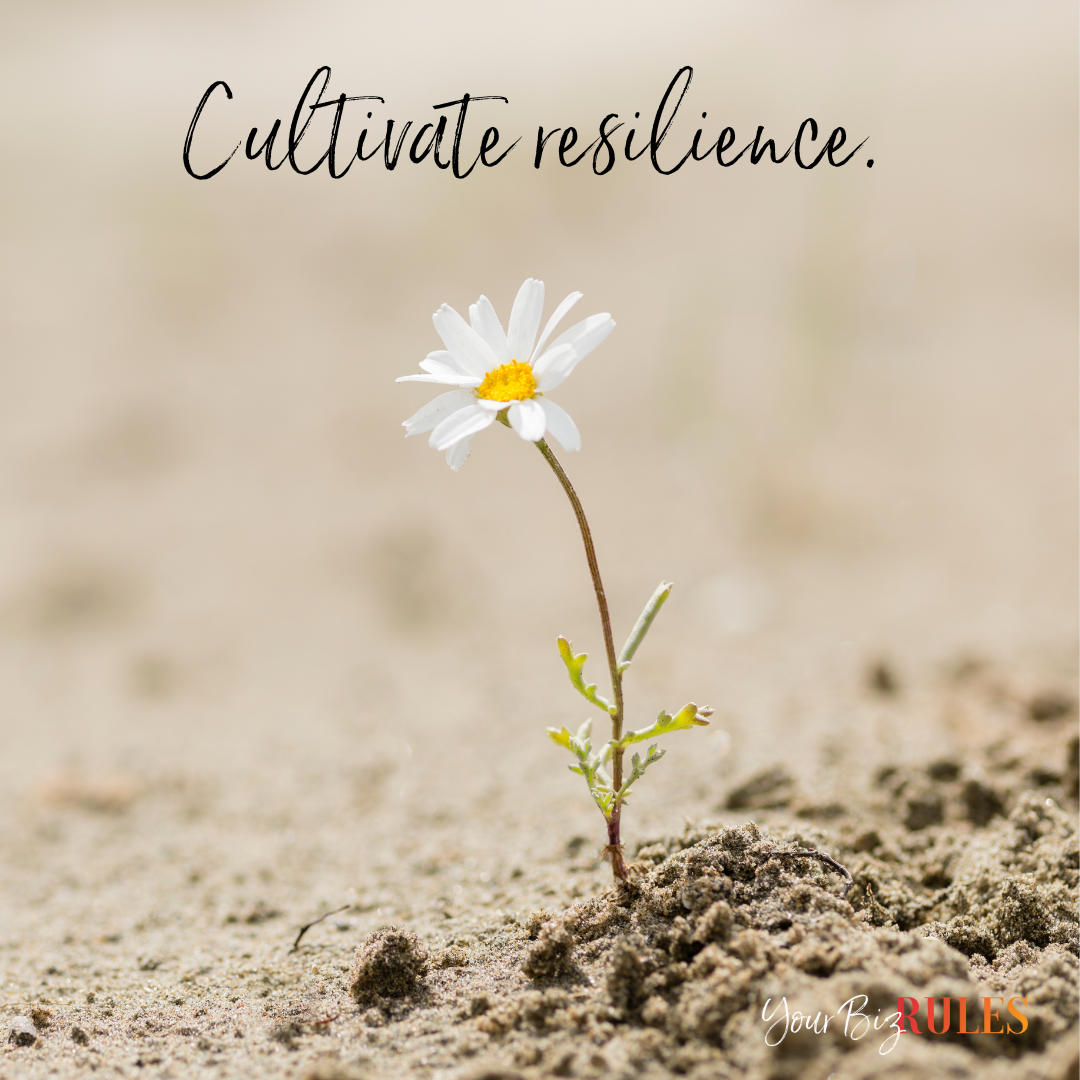
This exploration leads you to success and achieving your goals on an accelerated timeline - blowing past your competition.
Leading with a growth mindset reduces the drama around trying new things for yourself and your team. What would you and your team try if they knew there was no penalty for failure?� The mental safety that comes from the value of learning is that people are willing to innovate instead of staying in the comfort zone of what is known.
Transform Your Mindset, Transform Your Business: Partner with Your Biz Rules for Success
This enlightening article navigates the shift from a fixed to a growth mindset, guided by Carol Dweck's insights. Adopting this mindset revolutionizes your thinking and your entire approach to business leadership. Implementing the strategies from self-reflection to embracing challenges as growth opportunities will propel your personal and business development.�
For tailored guidance and support on this transformative journey, the business strategists at Your Biz Rules are here to assist. Reach out to us, and together, let's unlock the full potential of your entrepreneurial spirit. The path to growth and success is a collaborative journey, and Your Biz Rules is committed to walking it with you.



